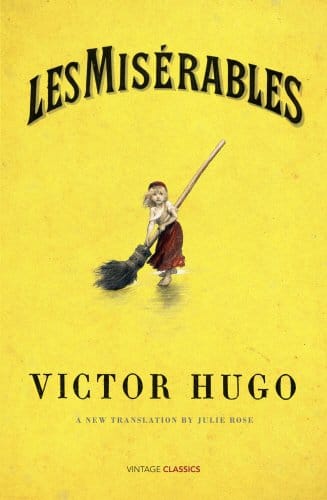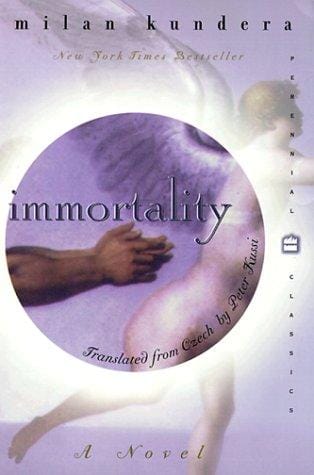Les Misérables: An In-Depth Guide to Victor Hugo’s Epic Novel
Explore Victor Hugo's Les Misérables—plot, themes, characters, cultural impact, and modern relevance—in this comprehensive 800-word guide.

Introduction to Les Misérables
Few works of fiction command as much respect and enduring affection as Victor Hugo’s Les Misérables. First published in 1862, the sweeping French novel spans nearly two decades and paints an intricate portrait of love, injustice, sacrifice, and redemption. From the downtrodden backstreets of post-Napoleonic Paris to the barricades of the 1832 June Rebellion, Hugo’s story follows ordinary people struggling against overwhelming social forces. This article offers an 800-word exploration of the book’s background, plot, themes, characters, cultural influence, and ongoing relevance for twenty-first-century readers.
Victor Hugo and the Birth of a Masterpiece
Victor Hugo, a celebrated poet, novelist, and statesman, began writing Les Misérables in the 1840s. He conceived the project as a moral clarion call—a way to expose France’s systemic poverty and inspire social reform. Political turbulence, self-imposed exile, and ambitious research delayed completion, but the final manuscript revealed Hugo’s panoramic imagination. Upon release, the novel was an instant bestseller, selling out within hours. Critics debated its sentimental tone, yet Hugo’s humanitarian message touched hearts across Europe and America, cementing the novel’s status as a cornerstone of French literature.
Plot Overview
At its core, Les Misérables recounts the life of Jean Valjean, a peasant sentenced to nineteen years’ hard labor for stealing a loaf of bread. After his release, Valjean is branded a dangerous ex-convict, unable to find work or lodging. An act of mercy by Bishop Myriel prompts a profound transformation: Valjean vows to dedicate his life to goodness. Under an assumed identity, he becomes a prosperous factory owner and benevolent mayor.
The story intertwines Valjean’s quest for redemption with the relentless pursuit of Inspector Javert, who believes the law is absolute. Along the way, readers meet Fantine, a single mother forced into degradation to support her daughter Cosette; the Thenardiers, corrupt innkeepers who exploit children; the passionate student Marius Pontmercy; and the courageous street urchin Gavroche. Their lives converge amid economic strife and revolutionary fervor. The climactic scenes at the barricades showcase both selfless heroism and tragic loss, while the novel’s closing pages deliver a poignant testament to love’s enduring power.
Central Themes
Hugo weaves multiple themes, but none are more prominent than social justice and moral redemption. He condemns institutional cruelty—from draconian criminal codes to callous indifference toward the poor—arguing that society itself creates criminals like Valjean. The novel also explores the tension between law and grace: Javert embodies rigid legality, whereas Valjean represents compassionate mercy. Faith, sacrifice, and the redemptive capacity of love echo through every plotline, underscoring Hugo’s belief that even the most marginalized soul can achieve spiritual salvation.
Unforgettable Characters
Jean Valjean stands as one of literature’s greatest protagonists; his evolution from resentful prisoner to selfless guardian offers a profound study in character transformation. Inspector Javert, meanwhile, provides a compelling foil—an honorable yet inflexible man whose worldview shatters when confronted with mercy. Fantine’s tragic arc humanizes the plight of impoverished women, while Cosette embodies hope and renewal. Secondary figures like Marius, Éponine, Gavroche, and the Thenardiers infuse the narrative with romance, pathos, humor, and satire, ensuring that Hugo’s fictional universe feels both grand and intimately human.
Global Cultural Impact
Since the nineteenth century, Les Misérables has transcended national boundaries, inspiring political activists, theologians, and artists. Abraham Lincoln reportedly read the novel during the American Civil War, taking solace in its humanitarian message. In France, Hugo’s depictions of urban poverty influenced early welfare debates. Modern social movements continue to quote Valjean’s struggle as a symbol of resilience against systemic oppression. Academic circles study the text for its pioneering use of literary realism, historical digression, and psychological depth, making it a staple in comparative literature courses.
Stage and Screen Adaptations
The story’s sweeping emotions and memorable archetypes naturally lend themselves to performance. The 1980 French stage musical, later adapted into the record-breaking 1985 London production by Cameron Mackintosh, introduced millions to songs like “I Dreamed a Dream” and “Do You Hear the People Sing?” Film versions date back to silent cinema, with notable adaptations in 1934, 1958, 1998, and the 2012 Oscar-winning musical film starring Hugh Jackman and Anne Hathaway. Each iteration reinterprets Hugo’s narrative for new audiences while retaining its core plea for compassion.
Why You Should Read Les Misérables Today
More than a historical epic, Les Misérables remains fiercely contemporary. Issues of income inequality, criminal justice reform, and social safety nets dominate modern headlines, echoing the injustices Hugo condemned. The novel also offers rich literary rewards: lyrical prose, suspenseful plotting, and philosophical reflection. Whether you’re a casual reader or a scholar, immersing yourself in Hugo’s 1,200-page masterpiece provides perspective on humanity’s capacity for cruelty and kindness—and a stirring reminder that hope can flourish even in the bleakest circumstances.
Conclusion
Victor Hugo envisioned Les Misérables as both entertainment and ethical exhortation, and its impact more than justifies his ambition. The novel’s unforgettable characters, sweeping narrative, and passionate advocacy for the oppressed have secured its place among the world’s great books. As long as societies wrestle with poverty, injustice, and the possibility of redemption, Hugo’s clarion call will continue to resonate, urging readers to “love one another” and, in doing so, change the world.



